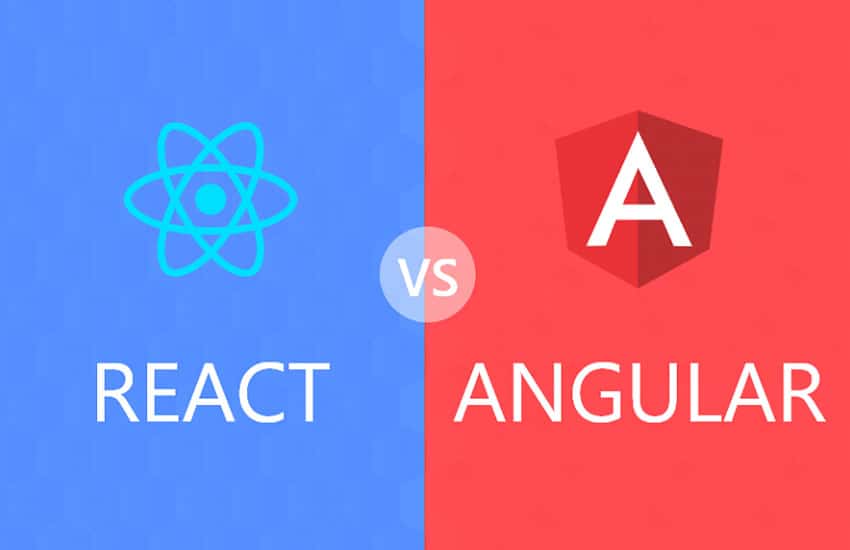Angular and React Native are two of the most popular app development frameworks in the field of mobile app development. As of September 2021, there were more than 5.6 million apps available on Google Play and the Apple App Store because there is always more demand for high-quality apps. Choosing the appropriate framework is important for businesses and entrepreneurs looking to develop powerful, practical, and user-friendly apps. Angular and React Native are two common and strong frameworks for building apps, each with its own advantages and capabilities.
The demand for skilled app development and marketing professionals is rising along with the increasing value of mobile apps. These experts can execute your idea effectively since they have an in-depth understanding of the field, the most recent trends, and the necessary technical skills. A talented group of marketers and developers can not only create an excellent app but also guarantee that it reaches its intended users and brings in revenue for your company.
In this article, we’ll explore Angular and React Native further to learn more about their advantages and applications, so that you may choose wisely for your upcoming mobile app project.
Introduction to React Native Mobile App Development
React Native is a cross-platform mobile app development framework that was developed by Facebook in 2015. It enables developers to create apps for both iOS and Android mobile apps using a single codebase. React, the JavaScript toolkit for creating user interfaces developed by Facebook, is the foundation of this open-source framework.
Key Characteristics of React Native
React Native has revolutionized the mobile app development industry with its ability to create high-quality, cross-platform apps using a single codebase. This innovative framework, backed by Facebook, has become a go-to-choice for developers seeking a fast, efficient, and powerful solution for their app development needs.
Let’s examine some of the salient features that set React Native apart:
- Code it once, run it everywhere. This idea helps save time and costs by allowing developers to reuse up to 90% of their code between the Android and iOS platforms.
- Developers can view code changes in real-time using the hot reloading functionality without recompiling the entire program.
- React Native has a large, active developer community that offers a wide range of information, assistance, and third-party libraries.
- Apps built with React Native have access to native features and deliver performance that is smooth and close to native.
Introduction to Angular Mobile App Development
A well-liked open-source framework for creating dynamic online and mobile applications is called Angular, which was created by Google. The Angular 2+ versions of the framework, which were first released in 2010 as AngularJS, offer a thorough rewrite and noteworthy advancements.
Key Characteristics of Angular That Set It Apart
Angular is a robust and versatile framework developed by Google. It has made a lasting impact in the world of web and mobile app development. Its component-based architecture, coupled with a rich ecosystem, makes Angular a powerhouse for creating dynamic, scalable, and performance-driven applications.
Here are some of Angular’s salient features:
- Angular supports a modular strategy with independent, reusable components that make the creation and testing of apps easier.
- This function speeds up development by ensuring automatic synchronisation between the model and the display.
- The built-in dependency injection system in Angular makes it simpler to organise and test project components.
- Angular has a robust developer community that offers angular developers assistance and cooperation, as well as a wide range of tools and libraries.
A Head-to-Head Comparison: Angular VS React Native
Angular VS React Native: Code Quality
Clean and maintainable code is a hallmark of both Angular and React Native. The component-based approach of React Native emphasizes code reuse, whereas the modular architecture of Angular supports the separation of concerns. In the end, the developer’s skill level and familiarity with the selected framework determine the quality of the code. However, React Native’s more user-friendly interface and straightforward syntax frequently lead to shorter development times and more readable code.
Angular VS React Native: App Performance
React Native provides near-native performance for apps by directly accessing native components. On the other hand, Angular uses WebView to render mobile apps, which occasionally results in slightly worse performance. However, developers may create mobile apps using Angular that perform exceptionally well by properly optimizing them and utilizing the framework’s capabilities.
Angular VS React Native: Developer Community and Support
Angular and React Native both have sizable, vibrant developer communities that offer a wealth of materials, assistance, and third-party libraries. React Native, which is funded by Facebook, has had recent rapid growth whereas Angular, which is backed by Google, has a well-established ecosystem. Despite the fact that both frameworks have active communities, React Native’s fast-growing user base frequently results in more frequent updates and cutting-edge functionality.
Angular VS React Native: Framework Architecture
The component-based architecture of Angular promotes a modular approach, which makes managing and testing app components simpler. Reusability and simplicity are the main goals of React Native, which is similarly based on a component-driven approach. Although Angular has a challenging learning curve for beginners, it offers a more organized and opinionated approach. In comparison, React Native is more adaptable and simpler to understand, especially for individuals who are already familiar with JavaScript.
Angular VS React Native: The Battle for Mobile App Development, Who Wins?
The decision between Angular and React Native ultimately comes down to the particular needs of your project, the skill level of your development team, and your own preferences. Complex, large-scale projects requiring fine-grained control and a structured approach are a great fit for Angular. On the other hand, React Native is ideal for projects requiring a single codebase for both Android and iOS as well as for quick, ongoing development.
Best Apps of Angular: Top 5 Use Cases
1. Google AdWords
As the company’s main product, AdWords serves as an example of Angular’s strength and adaptability.
2. Forbes
Using Angular, the well-known business publication, redesigned its website, enhancing user engagement and performance.
3. Upwork
The well-known freelance marketplace makes use of Angular to give users a seamless experience.
4. IBM
The IT giant’s internal apps are powered by Angular, demonstrating the framework’s ability to manage complicated tasks.
5. Xbox
The Xbox app from Microsoft uses Angular to give gamers a dynamic, feature-rich experience.
Best Apps of React Native: Top 5 Use Cases
1. Facebook
React Native was created here, and the world’s largest social network still uses it to create a seamless user experience for its mobile app.
2. Instagram
To speed up the creation of its Android and iOS apps, the well-known photo-sharing platform made use of React Native’s features.
3. Skype
React Native was used by Microsoft to redesign the Skype app, giving users a dependable, superior experience.
4. Walmart
To enhance the functionality and user experience of their app, the global retailer implemented React Native, resulting in a quicker, more responsive app.
5. Tesla
The maker of electric automobiles employs React Native for its smartphone app, giving users a smooth, user-friendly experience to control their cars.
Your Go-To Experts for Native App Development: Hoff & Mazor
An industry leader in app development, Hoff & Mazor focuses on producing outstanding mobile apps utilizing Angular, React Native, and other cutting-edge tools. Hoff & Mazor can assist you in bringing your mobile app idea to life and making sure it stands out in the crowded app market thanks to their team of industry specialists and successful track record.
Hoff & Mazor can assist you in achieving your app development goals by utilizing the benefits of Angular and React Native and producing a top-notch solution customized to your unique requirements and target market.
Conclusion: Angular vs. React Native
To sum up:
- React Native promises near-native performance, reusable code, and quicker development cycles.
- Angular offers a component-based, structured approach ideal for complicated, large-scale applications.
In conclusion, both Angular and React Native are popular frameworks for creating apps, each with their own specificities, advantages and applications. The frameworks you choose will rely on the needs of your project, the skill level of your development team, and your own preferences.
FAQs about Angular and React Native
Q: Which framework is easier to learn: Angular or React Native?
Most people agree that React Native is simpler to understand, especially for programmers with a background in JavaScript. Angular’s complicated and adamant approach results in a longer learning curve.
Q: Can I build both Android and iOS apps using React Native or Angular?
Yes, cross-platform mobile app development is supported by both Angular and React Native. While Angular generates mobile apps using WebView, React Native offers higher code reuse.
Q: Which framework is better for performance: Angular or React Native?
React Native typically has higher performance since it connects directly to native components, giving users a near-native experience. However, Angular-based mobile apps can also offer top performance with the right optimization.
Q: How important is community support when choosing between Angular and React Native?
Access to resources, third-party libraries, and troubleshooting help all depend on community support. With their sizable, vibrant developer communities, Angular and React Native will provide you with more than enough help as you build your app.
Q: How do I decide between Angular and React Native for my mobile app project?
Consider elements like the specifications for your project, the level of experience on your development team, and your personal preferences. React Native is the best choice for quick, rapid development with a single codebase for both Android and iOS platforms, while Angular is best for complicated, large-scale applications.







